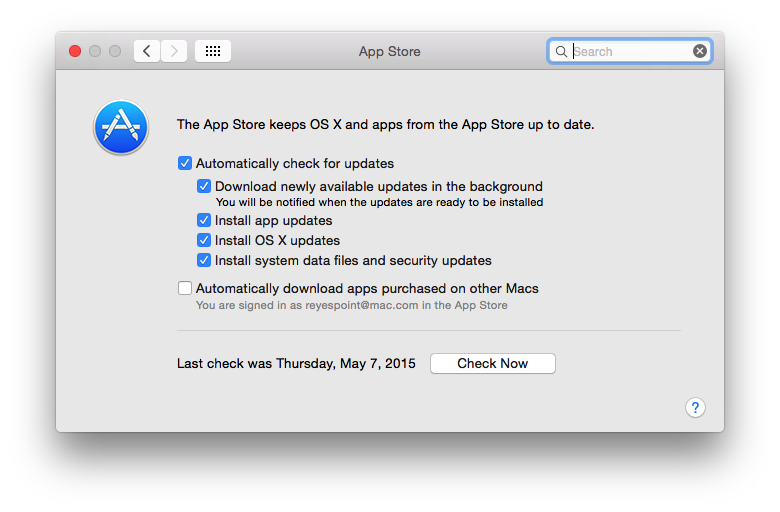

- Do i need antivirus for mac 2012 update#
- Do i need antivirus for mac 2012 for android#
- Do i need antivirus for mac 2012 software#
- Do i need antivirus for mac 2012 plus#
- Do i need antivirus for mac 2012 windows 7#
Concerns regarding web analytics have made LinkScanner a controversial component (see "LinkScanner concerns" below).
Do i need antivirus for mac 2012 plus#
LinkScanner includes: Search-Shield – a safe search component that places safety ratings next to each link in Google, Yahoo! and MSN search results plus Active Surf-Shield – a safe surf component that scans the contents of a web site in real-time to ensure it's safe being opened. The patent pending LinkScanner technology acquired from Exploit Prevention Labs and built into most AVG products, provides real-time updated protection against exploits and drive-by downloads. FeaturesĪVG features most of the common functions available in modern antivirus and Internet security programs, including periodic scans, scans of sent and received emails (including adding footers to the emails indicating this), the ability to repair some virus-infected files, and a quarantine area (virus vault) in which infected files are held.
Do i need antivirus for mac 2012 windows 7#
New versions require Windows 7 or later virus definitions are still provided for previous versions.
Do i need antivirus for mac 2012 update#
All are freemium products: They are free to download, install, update and use, but for technical support a premium plan must be purchased.ĪVG stopped providing new features for Windows XP and Windows Vista in January 2019.
Do i need antivirus for mac 2012 for android#
Platform supportĪVG provides AVG AntiVirus Free for Windows, AVG AntiVirus for Mac for macOS and AVG AntiVirus for Android for Android devices. On 7 July 2016, Avast announced an agreement to acquire AVG for $1.3 billion.
Do i need antivirus for mac 2012 software#
This software was incorporated into the AVG security product range in March 2009.Īccording to AVG Technologies, the company has more than 200 million active users worldwide, including more than 100 million who use their products and services on mobile devices. In January 2009, AVG Technologies acquired Sana Security, a developer of identity theft prevention software.

AVG Technologies acquired Exploit Prevention Labs (XPL) in December 2007 and incorporated that company's LinkScanner safe search and surf technology into the AVG 8.0 security product range released in March 2008. In 2006, the AVG security package grew to include anti-spyware as AVG Technologies acquired ewido Networks, an anti-spyware group. The AVG Free Edition helped raise awareness of the AVG product line. In 1997, the first AVG licenses were sold in Germany and the UK. The bulk of this malware is designed to steal money from infected smartphones.The brand AVG comes from Grisoft's first product, Anti-Virus Guard, launched in 1992 in the Czech Republic. According to Finnish security firm F-Secure, malware targeting this platform has almost quadrupled between 20. While the iOS platform has managed to remain malware free, the same cannot be said of Google's Android operating system. Last month he claimed that Apple was 10 years behind Microsoft when it came to security, and the company will have to change the ways it approaches updates following the recent malware attacks, where a Java vulnerability allowed over 600,000 Macs to be netted into a botnet by malware called Flashback. This isn't the first time that Kaspersky has criticized Apple. Because endpoint security relies on every device taking care of itself, having iPhones and iPads floating around compromises the security of the entire network. The term endpoint security is a security concept that assumes that every device - or end point - is responsible for its own security. This is where an antivirus app, or more specifically, an endpoint security app, would come in very useful. In this sort of environment, a rogue app or jailbroken iOS device could be used to infiltrate a network and spy on communications. While a mass attack against iPhone or iPad users is unlikely given its complexity, a targeted attack against a specific entity - corporation or government agency - is far more likely. However, for enterprise users, things are different. And by securing the device with a passcode and installing Apple's Find My iPhone app they should be able to both prevent data loss if the device is lost or stolen, and have a good chance of recovering the errant device. The biggest thing that home users need to be worried about as far as their iPhone or iPad is concerned is to make sure they don't lose the device.


 0 kommentar(er)
0 kommentar(er)
